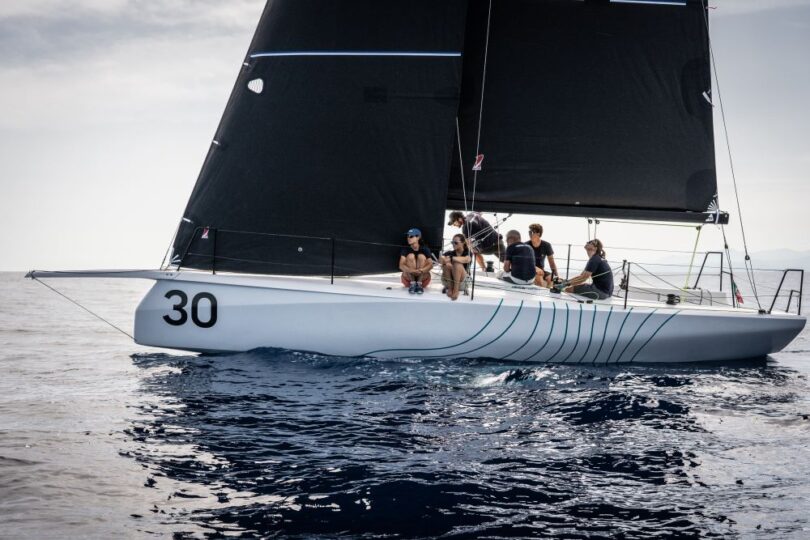Yachting industry welcomes recyclability and climate neutrality with the birth of ECO Yachts: the first shipyard in the world to produce climate neutral boats. All models of this brand, will in fact be produced in such a way as not to alter the natural balance of CO2, methane and other climate-changing gases.
Climate standard, following the methodologies described by the Greenhouse Gas Protocol, ISO 14067 and PAS2060, has verified the climate neutrality of the boats.
In line with the transparency and sustainability values embodied by the brand, ECO Yachts has publicly released emissions data of the ecoracer30, along with the offsetting strategy and emission reduction plan.
The founders of ECO Yachts are the visionaries behind nlcomp, the creators and patent-holders of the recyclable composite material rComposite™, which will be used in all of the brand’s boats.
Fabio Bignolini, CEO of ECO Yachts said: “In addition to using a recyclable composite material, we have taken a further step towards comprehensive sustainability. This includes the use of recyclable molds, state-of-the-art sails, and advanced propulsion systems.
We have also calculated the emissions generated during the production of the ecoracer30, and we will offset these emissions by investing in selected projects. However, measuring and offsetting is just the first step. With the support of the climate standard team, we will implement an emission reduction plan that will be made public.”
Recyclability and circular economy
The hulls of these boats will be designed with the aim of facilitating end-of-life dismantling, following the principle of ‘designing for disassembly‘. Thanks to the adoption of rComposite technology, available for licensing to every shipyard, it will be possible to recycle and give a second life to the composite material used to build the hulls.
Every aspect of the design process, including the selection of materials, will be aimed at minimizing weight to allow optimal sailing in all conditions and reduce the use of engines.
On board, the equipment and systems will be powered by renewable sources: solar, hydraulic and wind energy.
Among the choices that will reduce ECO Yachts’ emissions are partnerships with One Sails and Breton. One Sails supplies 4T Forte™ sails, currently the only recyclable sails on the market. They can be easily recycled and reused for the production of accessories such as sail components, markers or sunglasses. Breton, on the other hand, will guarantee the recyclability of the moulds used to produce the boats. Thanks to the Genesi 3D printer, Breton will in fact be able to produce easily recyclable moulds through additive manufacturing.
Reducing and offsetting emissions
The climate-neutral strategy for the ECO Yachts models has been verified by the independent verification body Climate Standard. The assessment covers the entire production process, from the sourcing of raw materials to the delivery of the boat to the customer, ensuring that all emissions of CO2 and other greenhouse gases will be offset.As part of their company philosophy that considers transparency essential for sustainability, ECO Yachtsl made these certifications public. This means that not only the company’s customers, but also industry enthusiasts will be able to access data on polluting gas emissions and monitor the progress of emission reduction projects.
“Over the past few years, we have successfully developed and adopted recyclable composite materials, which have served as an inspiration to other brands in the nautical industry now venturing into similar technologies. The next step we are taking enables us to guarantee that the boats we produce have no negative impact on the environment.
For us, launching a climate-neutral product is a significant declaration of our commitment to sustainability. Similarly, when boat owners choose a carbon-neutral boat, it demonstrates their strong dedication to environmental awareness.”
Climate Standard verified the annual emissions in tonnes of CO2e, considering both direct and indirect emissions, including those from suppliers. This measurement will be followed by the implementation of initiatives aimed at reducing the climate footprint and offsetting unavoidable emissions. The public certification also outlines the emission reduction strategy and identifies key members of the ECO Yachts team responsible for achieving and pursuing these goals.
Pietro Spataro, CEO of Climate Standard, explains, ‘Climate neutrality means that a company takes responsibility for its emissions by offsetting not only CO2 emissions but also the other five main greenhouse gases. This offsets the negative effects on the climate.’
The European commission voted this september a directive that highlighted the illegality of self-declarations in environmental sustainability issues, thus necessitating a third-party verification body.
In addition to being in line with European directives, involving a dedicated company to verify this status also means being credible towards the customer. In fact, a survey has shown that 60% of consumers do not consider companies’ green self-declarations to be reliable.”







